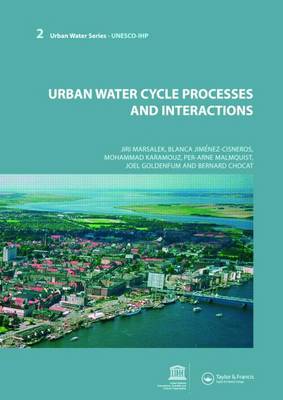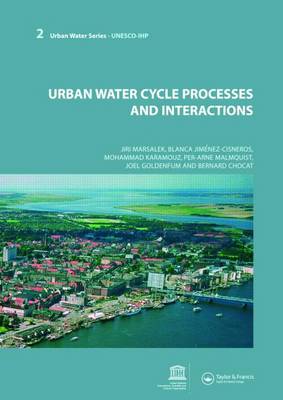
- Retrait gratuit dans votre magasin Club
- 7.000.000 titres dans notre catalogue
- Payer en toute sécurité
- Toujours un magasin près de chez vous
- Retrait gratuit dans votre magasin Club
- 7.000.0000 titres dans notre catalogue
- Payer en toute sécurité
- Toujours un magasin près de chez vous
Urban Water Cycle Processes and Interactions
Urban Water Series - UNESCO-IHP
Jiri Marsalek, Blanca Jimenez Cisneros, Mohammad KaramouzDescription
Effective management of urban water should be based on a scientific understanding of the impact of human activity on both the urban hydrological cycle - including its processes and interactions - and the environment itself. Such anthropogenic impacts, which vary broadly in time and space, need to be quantified with respect to local climate, urban development, cultural, environmental and religious practices, and other socio-economic factors.
Urban Water Cycle Processes and Interactions represents the fruit of a project by UNESCO's International Hydrological Programme on this topic. The volume begins by introducing the urban water cycle concept and the need for integrated or total management. It then explores in detail the manifold hydrological components of the cycle, the diverse elements of urban infrastructure and water services, and the various effects of urbanization on the environment - from the atmosphere and surface waters to wetlands, soils and groundwater, as well as biodiversity. A concluding series of recommendations for effective urban water management summarize the important findings set forth here.
Urban Water Series - UNESCO-IHP Volumes
Following from the Sixth Phase of UNESCO's International Hydrological Programme (2002-2007), the Urban Water Series - UNESCO-IHP addresses fundamental issues related to the role of water in cities and the effects of urbanization on the hydrological cycle and water resources. Focusing on the development of integrated approaches to sustainable urban water management, the Series should inform the work of urban water management practitioners, policy-makers and educators throughout the world.
Spécifications
Parties prenantes
- Auteur(s) :
- Editeur:
Contenu
- Nombre de pages :
- 152
- Langue:
- Anglais
- Collection :
Caractéristiques
- EAN:
- 9780415453479
- Date de parution :
- 07-09-07
- Format:
- Livre broché
- Format numérique:
- Trade paperback (VS)
- Dimensions :
- 174 mm x 246 mm
- Poids :
- 263 g







